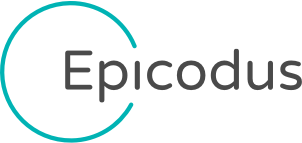If you’re teaching yourself to code or considering a program like Epicodus, the one thing you should know is that no one said it would be easy. There’s more to becoming a great developer than mastering several programming languages. Sometimes the most valuable lessons you’ll learn are those you learn through personal experience, not guided curriculum.
So, if you’re a new developer with little to no experience, these 5 pieces of advice are for you.
1. Learn how to use Google.
It sounds fairly simple – who doesn’t know how to use Google? But you’ll quickly learn as a new developer that Google does usually have answers, but actually finding those answers may be harder than you think. This is especially true if you don’t yet know the exact terminology for the problem you’re trying to solve. A good rule of thumb is to Google “how to” and some variation of “[keyword] [verb] [programming language].” For example: “how to resolve null pointer exception java.” Get as specific with your keywords as you can. Remember, professional developers have to Google just as much as you do – it’s all a learning process.
2. Test as you go.
There’s no way around this. No one ever writes perfect code the first time around. If you wait until deployment to test your code, you'll likely hit more errors than you know what to do with. (To be fair, this can happen at any point in the development process.) It pays to test as you go. Frequent, thorough testing helps narrow down the exact location of bugs, and for you to write cleaner, better code. And when you think you’re finished testing… test again. Do your best to break your own program, and you’ll end up with a stronger finished product.
3. Read and write (a lot) of code.
Like we said above, the only way to get better at writing code is to write lots of code. That’s why our classes are 100% hands-on. But reading professional code is also a great way to find creative solutions and familiarize yourself with coding best practices. Try exploring open source projects – GitHub has lots of them with solid documentation. And as always, ask questions when you need to. Most open sources are happy to help.
4. Code by hand.
Why bother with this seemingly tedious exercise? It’s a great motivator to write clean, efficient code! Practice writing pseudocode first – a sort of "plain English" outline for what you'd like your code to do. Then go back and fill in your actual code. The process will force you to slow down, think about the purpose of every line, and try to find the simplest solution. This is also critical practice for job interviews, where you are often asked to code "manually" on a whiteboard.
5. Don’t give up.
Even the best developers drive themselves crazy over an elusive bug sometimes, but it’s important to remember that bugs aren't necessarily a reflection of your intelligence. Your goal should always be to keep learning, not to be a “super programmer” right out of the gate. No one is. Focus on improvement, and don’t let the imposter syndrome hold you back.
Feeling motivated? Keep up the momentum with our guides to technical and non-technical interviews. And let us know: which lessons have helped you as a new developer? Which lessons do you wish you’d known earlier?

